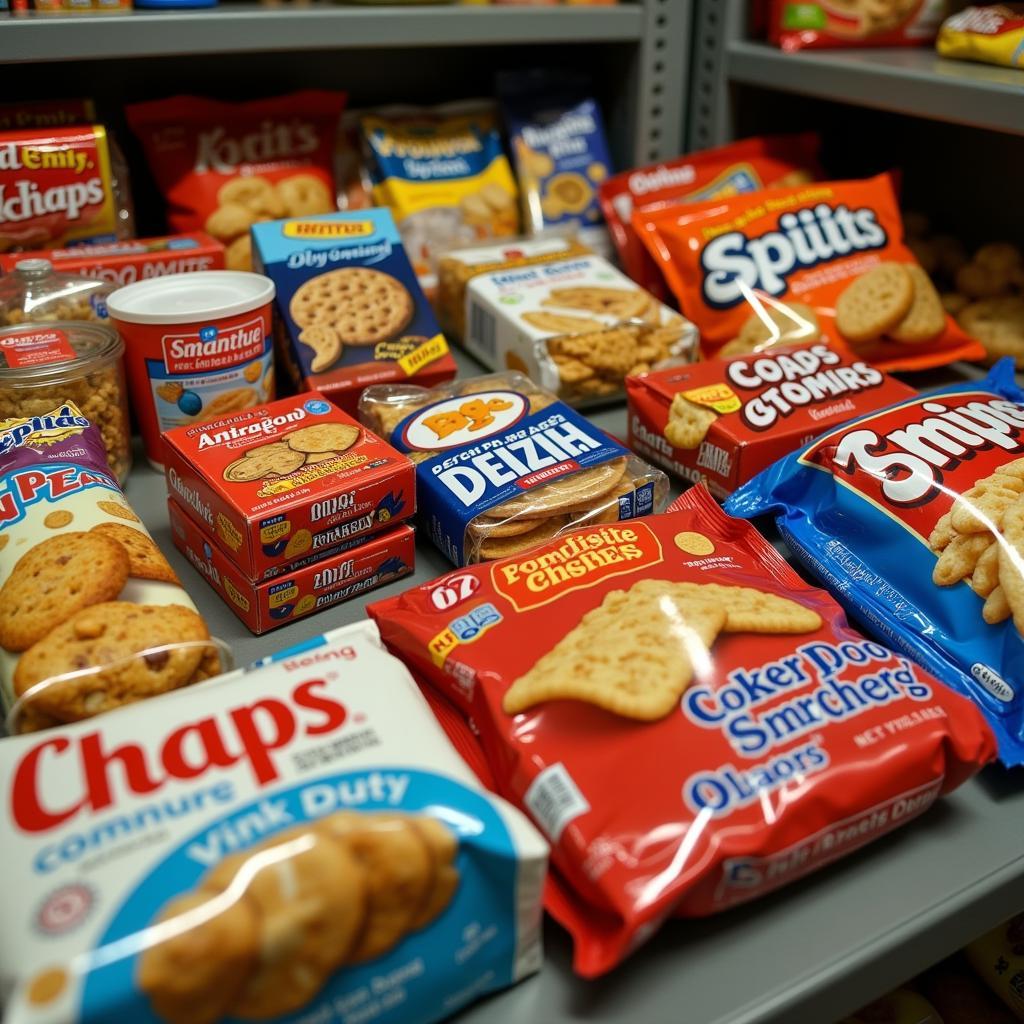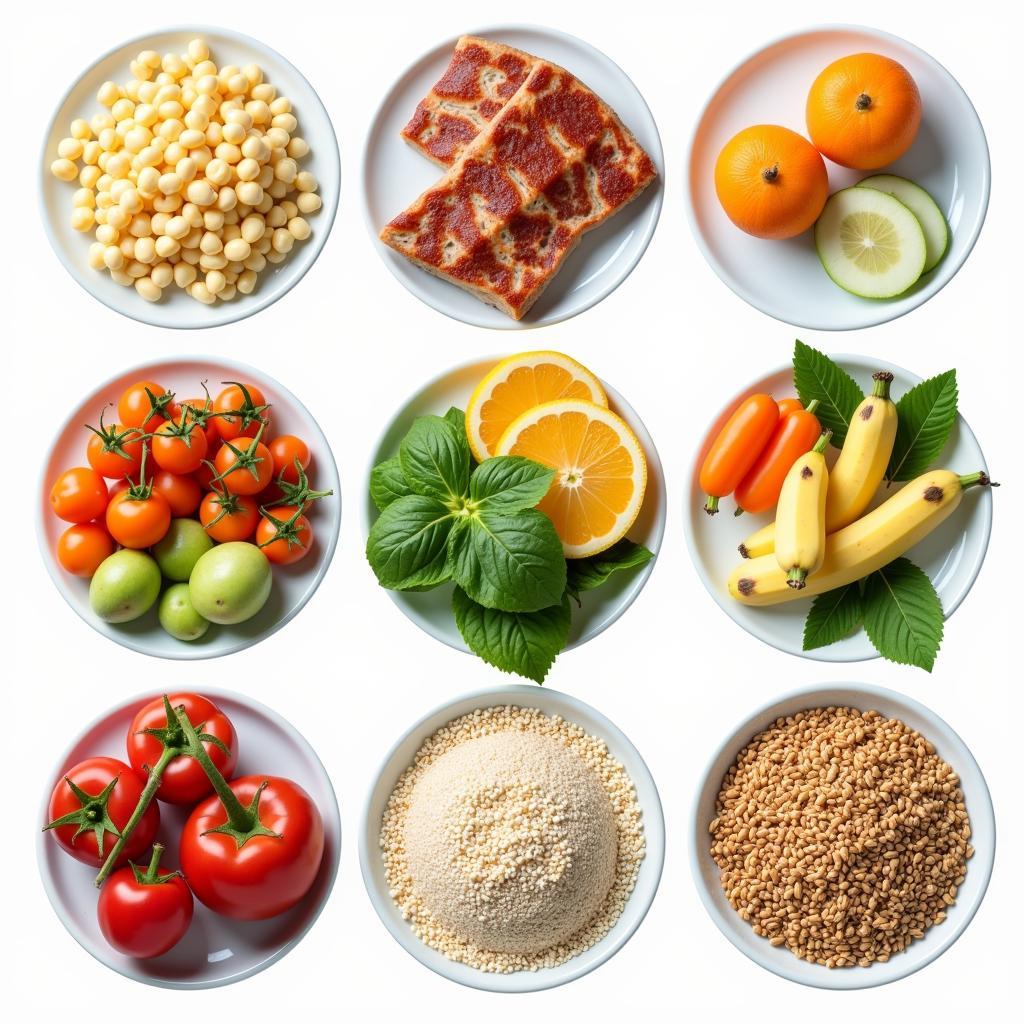Jail Canteen Food. It’s a phrase that evokes curiosity and perhaps a touch of apprehension. Unlike the culinary delights we encounter in the outside world, jail food often carries a stigma of being bland, unappetizing, and lacking in nutritional value. But what’s the truth behind these prison walls? Let’s delve into the reality of jail canteen food and explore what’s really on the menu.
Jail Canteen Food vs. Regular Meals: Understanding the Difference
First, it’s essential to distinguish between standard jail meals provided by the facility and food available at the jail canteen. Regular meals are typically prepared in bulk and aim to meet basic nutritional needs. These meals are often subject to strict budgetary constraints, which can impact the quality and variety of ingredients used.
The jail canteen, on the other hand, offers inmates an opportunity to purchase additional food items and beverages beyond the standard fare. Canteen offerings typically include packaged snacks, instant noodles, processed meats, and beverages. These items provide a welcome change from the monotony of regular jail meals and can serve as a source of comfort and familiarity for those incarcerated.
A Glimpse into the Jail Canteen Menu: What Can Inmates Buy?
While specific offerings vary depending on the facility and its location, some common staples on a jail canteen menu include:
- Snacks: Chips, cookies, crackers, candy bars, popcorn
- Instant Foods: Ramen noodles, instant soups, macaroni and cheese
- Canned Goods: Tuna, sardines, fruits, vegetables
- Condiments: Ketchup, mustard, mayonnaise, hot sauce
- Beverages: Coffee, tea, juice, soda
 Assortment of Jail Canteen Snacks
Assortment of Jail Canteen Snacks
It’s important to note that fresh produce, dairy products, and other perishable items are often limited or unavailable due to storage and logistical challenges within correctional facilities.
The Role of Jail Canteen Food: Beyond Basic Sustenance
Jail canteen food serves a purpose beyond simply supplementing an inmate’s diet. It can play a significant role in their overall well-being and quality of life while incarcerated.
- Comfort and Familiarity: Familiar food items can provide a sense of normalcy and comfort in an otherwise unfamiliar and potentially stressful environment.
- Social Currency: Canteen food can be shared or traded among inmates, fostering social connections and a sense of community within the confined setting.
- Supplemental Nutrition: While not always the healthiest options, canteen food can provide additional calories and nutrients that may be lacking in standard jail meals.
The Economics of Jail Canteen Food: Costs and Considerations
Prices at jail canteens can vary significantly from regular retail prices. Inmates and their families often face financial challenges, making the cost of canteen items a significant factor.
Advocates for prison reform often raise concerns about the high markups on canteen items, arguing that they place an undue burden on incarcerated individuals and their families.
The Debate Surrounding Jail Canteen Food: Quality, Cost, and Ethical Concerns
The topic of jail canteen food often sparks debate, raising important questions about the quality, cost, and ethical implications of the system.
- Nutritional Value: Critics argue that the prevalence of highly processed, sugary, and salty foods in jail canteens contributes to poor health outcomes among incarcerated populations.
- Financial Burden: The high cost of canteen items can create financial strain for inmates and their families, potentially limiting access to essential items.
- Exploitation Concerns: Some view the inflated prices of canteen goods as exploitative, as inmates have limited alternatives and are a captive market.
Beyond the Bars: Advocating for Change and Improvement
The conversation surrounding jail canteen food highlights a broader need for reform within the correctional food system. Advocating for improvements in the quality, affordability, and nutritional value of food provided to incarcerated individuals is crucial.
“Ensuring access to nutritious and affordable food is not only a matter of basic human rights but also an investment in the health and well-being of those who are incarcerated,” notes Sarah Jones, a criminal justice reform advocate. “We need to move away from viewing jail food as simply punishment and instead prioritize the health and dignity of all individuals, regardless of their incarceration status.”
 Plate of Nutritious Jail Food
Plate of Nutritious Jail Food
By prioritizing the health and well-being of incarcerated individuals, we can create a more just and humane correctional system.